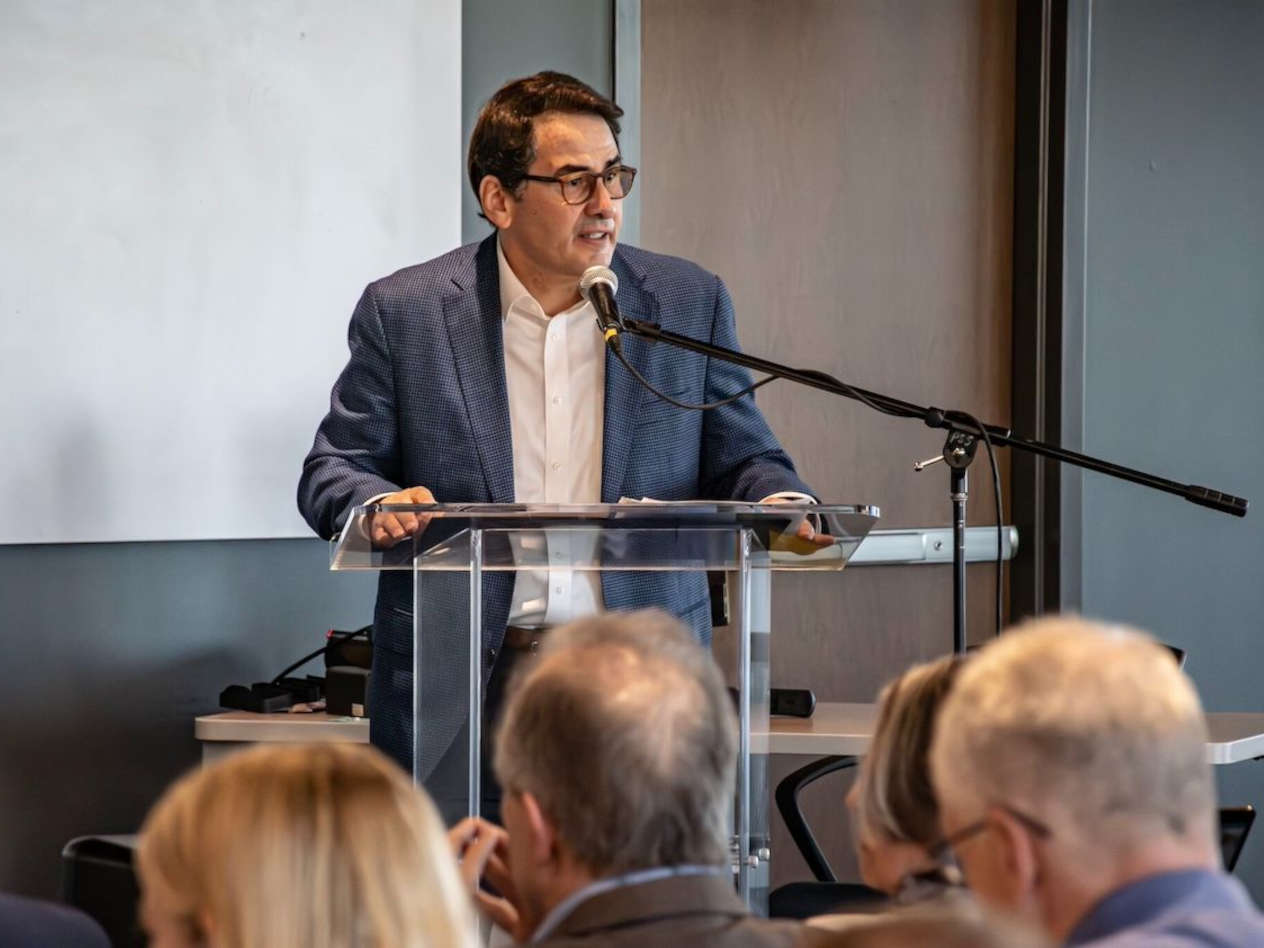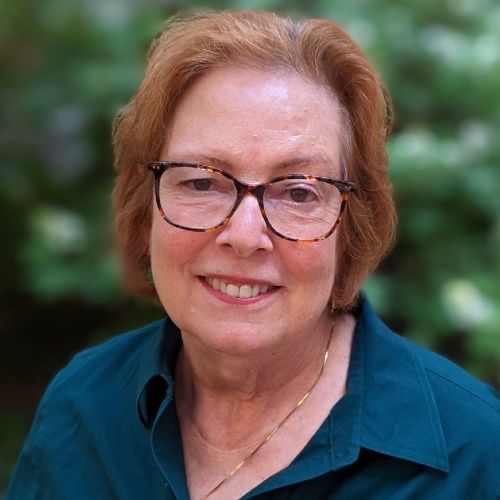API Innovation Center puts St. Louis at forefront of pharmaceutical manufacturing innovation
- August 5, 2024
- By Jill Young Miller
- 4 minute read

St. Louis is emerging as a player in the nation’s pharmaceutical industry, thanks in large part to the API Innovation Center and its founder, Tony Sardella.
Sardella, an Olin adjunct lecturer and senior research advisor at the school’s Center for Analytics and Business Insights, founded the center in 2021 to address a critical supply chain issue.
The nonprofit organization, funded in part by the state of Missouri, the Missouri Technology Corporation and the federal government, is dedicated to reshoring the production of active pharmaceutical ingredients (APIs)—the core components of drugs—back to the United States. Its mission: to build resilience in the nation’s drug supply.
The COVID-19 pandemic highlighted the vulnerabilities of relying on overseas manufacturers, particularly in China and India, for essential pharmaceutical components. At Olin, Sardella led a 2021 CABI study into the matter.
'Fragile' supply chain
“The research revealed that our supply chain was quite fragile and that our health security was at risk,” he said in a recent interview. More than 80% of APIs for essential medicines across crucial therapeutic areas had no US manufacturing source.
This year, for the first time in history, the US set a record with 323 medicines on a shortage list, he said.
“These are cardiovascular drugs, medicines for cancer, medicines for thyroid,” Sardella said. Of the top 100 generic drugs that Americans take, 83% have no API source in the US.
“What's the problem with that? The problem with that is that you end up with a very fragile system that can lead to drug shortages for patients.”
The center is working to mitigate the risk by building a robust domestic supply chain for APIs. By fostering collaboration between industry, academia and government, the center—in the old Dorris Motor Car Co. building in the Cortex Innovation District—also is driving innovation and economic growth in the St. Louis region.
By facilitating these collaborations and promoting advanced manufacturing technologies, the center is on track to achieve its near-term target of 25 essential medicines and a $1.275 billion impact, Sardella said. The impact comes commercializing medicines for healthcare systems, national retail pharmacies and the federal government.
Its long-term goal, according to a January 2024 report from the center, is to support President Biden’s executive order on biomanufacturing and the administration’s Bold Goals for U.S. Biotechnology and Biomanufacturing, published in 2023. The “Bold Goals” report sets a goal of reshoring 25% (about 300) of the nation’s small-molecule active pharmaceutical ingredients.
This November, the API Innovation Center will host its second annual plenary event at Olin with the Center for Analytics and Business Insights. The event will bring together government, industry, academia and other stakeholders from across the nation to devise an action plan to meet the ambitious reshoring goal.
Drug to treat brain cancer
The center already has a significant drug—lomustine—in its current pipeline of 10. The center achieved a critical milestone with the development of technology for US production of the crucial chemotherapy drug for glioblastoma, which is the most common and deadliest type of brain cancer.
The center has brought together partners for the US production of lomustine to create a sustainable supply for patient treatment, reduce the cost of the drug and enable new drug clinical trials. Recently, it selected the local firm Apertus Pharmaceuticals to manufacture it.
Meanwhile, the center is adopting cutting-edge manufacturing techniques like continuous flow manufacturing, which can improve efficiency, reduce waste and enhance product quality. It recently announced the establishment of a new R&D laboratory at the University of Missouri-St. Louis to foster pharmaceutical manufacturing breakthroughs.
Recognizing the need for a skilled workforce, the centerhere also is investing in programs throughout the community to train and educate pharmaceutical professionals.
“We're growing jobs in the region and Missouri's pharmaceutical manufacturing base,” Sardella said. “Plus, we’re securing our nation’s drug supply.”
Register for the event
On September 25, Olin's Center for Analytics and Business Insights (CABI) will partner with the API Innovation Center to spotlight the benefits of advancing pharmaceutical manufacturing in Missouri. The event will highlight how the innovations can drive economic growth, create jobs, and enhance national health security across the state and the nation.
The findings of a comprehensive economic impact study conducted by an Olin student team under CABI’s guidance will be presented. The study assesses the wide-ranging economic and societal impacts of developing and commercializing a generic drug within the state.
The event will also include a panel discussion exploring how the advancements will strengthen Missouri’s manufacturing sector, reduce the U.S. pharmaceutical industry’s reliance on foreign API production, and position Missouri as a leader in biopharmaceutical innovation.
Media inquiries
For assistance with media inquiries and to find faculty experts, please contact Washington University Marketing & Communications.
Monday–Friday, 8:30 to 5 p.m.
Sara Savat
Senior News Director, Business and Social Sciences
